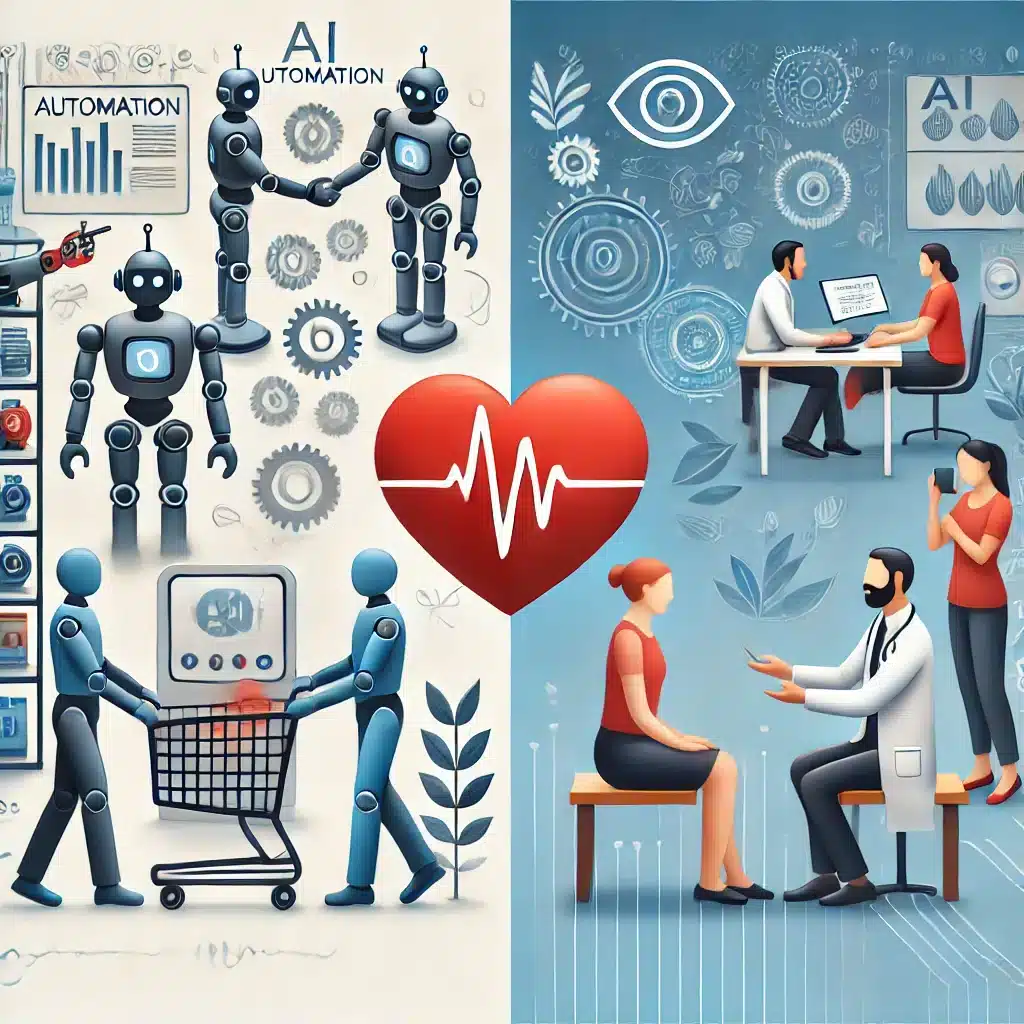Artificial Intelligence (AI) is revolutionizing industries worldwide, and B2B sales are no exception. Integrating AI into the complex sales cycles of B2B sales transforms how businesses approach sales strategies, productivity, and customer interactions. Understanding AI’s influence on these intricate processes can help organizations harness its potential, ensuring more efficient and effective sales workflows.
How Does AI Revolutionize B2B Sales?
What Are the Key AI Tools in B2B Sales?
AI tools are game-changers in B2B sales, offering capabilities to analyze vast datasets and provide actionable insights. Predictive analytics, AI-powered CRM systems, and advanced chatbots streamline workflows and boost efficiency. For instance:
- Predictive Analytics: Anticipate customer behavior and market trends.
- AI-driven CRMs: Provide personalized sales recommendations and manage customer interactions seamlessly.
- Chatbots and Virtual Assistants: Deliver 24/7 engagement, enhancing customer experience without human intervention.
By adopting these tools, sales teams can optimize outreach, enhance lead conversion, and make data-driven decisions.
How Does Generative AI Enhance B2B Sales Strategies?
Generative AI takes sales strategies to the next level by creating persuasive and targeted content tailored to potential client’s preferences. This includes generating:
- Personalized emails and proposals.
- Data-backed sales pitches based on past interactions and predictive modeling.
Automating content creation saves time and ensures relevance, helping businesses build stronger client relationships and drive growth in competitive B2B markets.
What are the benefits of AI in B2B sales in terms of reducing sales cycle time?
AI dramatically shortens sales cycles by automating repetitive tasks like lead scoring and data analysis. It helps:
- Identify high-value prospects quickly.
- Provide real-time insights to align strategies with market trends.
With AI, businesses experience faster deal closures and quicker revenue realization, staying ahead in the competitive B2B sales landscape.
What is the Impact of AI on Sales Productivity?
How Does AI Automate Repetitive Tasks?
AI technologies excel in automating repetitive and time-consuming tasks, freeing up sales teams to concentrate on more strategic activities. AI algorithms can handle data entry, schedule follow-ups, and manage customer interactions across multiple platforms. By automating these mundane tasks, AI improves productivity, allowing sales representatives to dedicate more time to building relationships and closing deals. Automation enhances efficiency and reduces the likelihood of human error, creating more reliable and consistent sales processes.
How AI Can Make Decisions Based on Large Amounts of Data?
One of the most profound impacts of AI on sales productivity is its ability to make data-driven decisions. AI can analyze vast amounts of data from various sources—including CRM systems, social media, and market reports—to uncover trends and patterns that human analysts might miss. These insights enable sales teams to make informed decisions quickly, tailor strategies to specific customer segments, and identify emerging opportunities. The ability of AI to process and interpret large datasets thus becomes a critical factor in optimizing sales performance and staying ahead of the competition.
What Role Does Natural Language Processing Play in AI-Powered Sales?
Natural language processing (NLP) is a subset of AI that focuses on interactions between computers and human language. NLP enhances AI-powered sales by enabling machines to understand, interpret, and respond to human language in a way that is both meaningful and useful. Chatbots, powered by advanced NLP algorithms, can manage initial customer inquiries, provide personalized responses, and deliver a seamless customer experience. This level of automation not only boosts productivity but also ensures consistent engagement, paving the way for more effective sales cycles.
How Will AI Change the Future of B2B Sales?
What Are Future AI Trends in Sales Automation?
The future of AI in B2B sales automation is likely to be dominated by advancements in machine learning and AI algorithms. These future trends include more sophisticated predictive analytics, enhanced AI-generated content, and seamless integrations of AI with other technologies such as the Internet of Things (IoT) and blockchain. Businesses will benefit from AI’s increasing capacity to predict market shifts, automate complex sales processes, and provide hyper-personalized customer experiences. These AI applications will drive more efficient sales strategies and more robust customer engagement.
How Can Businesses Prepare for the Future of AI?
To prepare for the future of AI, businesses need to invest in robust AI infrastructure and cultivate a culture that embraces technological innovation. Training programs should focus on equipping sales teams with the knowledge and skills to leverage AI tools effectively. Additionally, organizations must prioritize data security and ethical AI practices to maintain customer trust and compliance with regulations. By proactively adopting AI technologies and investing in continuous learning, businesses can stay competitive and navigate the evolving digital landscape.
Will AI Ensure More Personalized Customer Interactions?
The potential of AI to ensure more personalized customer interactions is immense. Through the analysis of customer data, AI can provide deep insights into individual preferences, behavior patterns, and purchase histories. This allows sales teams to tailor their communications and offers, resulting in highly personalized interactions that foster customer loyalty and satisfaction. AI-driven personalization also enables more effective customer segmentation and targeted marketing campaigns, thus enhancing the overall customer experience and driving sales performance.
What Challenges Come with Implementing B2B sales?
How to Overcome Data Privacy Concerns?
Data privacy is a significant challenge in the implementation of AI in sales. To overcome these concerns, businesses need to adopt rigorous data protection measures. This includes securing data storage, ensuring compliance with data privacy regulations like GDPR, and transparency in data usage. By implementing these measures, businesses can build trust with their customers and mitigate the risks associated with data breaches. The responsible use of AI in handling customer data will be crucial in maintaining ethical standards and protecting the interests of stakeholders.
What Are the Potential Downsides of Relying on AI Systems?
Although AI offers numerous advantages, there are potential downsides to relying heavily on AI systems. These include the risk of over-automation, where human judgment and creativity may be underutilized. Additionally, AI systems can sometimes perpetuate biases present in data, leading to unfair or discriminatory outcomes. Businesses need to ensure that AI systems are regularly audited and refined to address any biases and maintain fairness. Furthermore, there is the challenge of maintaining AI systems, which require constant updates and fine-tuning to stay effective and relevant.
How to Ensure That AI is Used Ethically in Sales?
To ensure that AI is used ethically in sales, businesses must establish clear guidelines and principles for AI deployment. This includes defining what constitutes ethical AI use, promoting transparency in AI-driven decisions, and protecting customer rights. Ethical AI also involves accountability, where businesses take responsibility for the outcomes produced by their AI systems. By fostering a culture of ethical AI use, organizations can balance the benefits of AI with the need to safeguard the well-being and trust of their stakeholders.
What is the Overall Impact of AI on Society Through B2B Sales?
How Could AI Change the World of B2B Sales?
AI is likely to change the world of B2B sales by making processes more efficient, data-driven, and customer-centric. The continuous evolution of AI technologies means that sales cycles will become faster, more predictable, and tailored to individual client needs. AI can contribute to the development of more sophisticated sales strategies and better allocation of resources, thereby driving growth and innovation. As businesses adapt to these changes, the competitive landscape will shift, favoring those who effectively leverage AI to enhance their operations and customer relationships.
What Are the Societal Benefits of AI in B2B Transactions?
The societal benefits of AI in B2B transactions extend beyond economic gains. AI drives efficiencies that can lead to more sustainable business practices, reducing waste and optimizing resource use. Moreover, by facilitating better decision-making and enhancing customer experiences, AI can improve the overall quality of business interactions. This, in turn, fosters a more collaborative and transparent business environment, promoting trust and long-term partnerships. The broader impact on society includes accelerated technological advancements and new opportunities for innovation across various sectors.
How Does AI Influence Workplace Productivity and Job Roles?
AI significantly influences workplace productivity by automating routine tasks and providing valuable insights that guide strategic decisions. As AI systems take over repetitive functions, employees can focus on higher-value activities that require human creativity and emotional intelligence. This shift not only boosts overall productivity but also transforms job roles, creating opportunities for skill development and professional growth. While there is a concern that some jobs may be replaced by AI, the evolution of AI technologies also opens up new career paths in AI management, data science, and tech-driven sales strategies.
Conclusion
AI is revolutionizing B2B sales by enhancing efficiency, driving personalization, and transforming workflows. From predictive analytics to generative AI, these tools empower businesses to achieve better outcomes and build stronger customer relationships. While challenges like data privacy and ethical considerations must be addressed, the potential of AI to reshape B2B sales is undeniable. Companies that embrace AI responsibly will not only thrive in the present but also lead the way into the future of sales innovation.
FAQs
1. What is AI in B2B sales?
AI in B2B sales refers to using artificial intelligence technologies, such as machine learning and natural language processing, to enhance sales processes. It enables businesses to analyze data, predict customer behavior, and personalize interactions, resulting in more efficient and effective sales strategies.
2. How does AI improve sales productivity in B2B?
AI automates repetitive tasks like data entry, lead scoring, and follow-ups, freeing up sales teams to focus on high-value activities. It also provides actionable insights from large datasets, enabling data-driven decision-making. This combination of automation and intelligence significantly boosts productivity and efficiency.
3. What role does AI play in customer interactions?
AI enhances customer interactions by providing personalized experiences and timely responses. Tools like AI-powered chatbots and virtual assistants handle inquiries, offer recommendations, and ensure consistent engagement. This builds stronger relationships and improves customer satisfaction.
4. How can businesses use AI to shorten sales cycles?
AI helps shorten sales cycles by quickly identifying high-priority leads, automating outreach, and providing real-time insights. Predictive analytics enables sales teams to focus on opportunities most likely to convert, accelerating the decision-making process and boosting revenue.
5. What are the challenges of implementing AI in B2B sales?
The challenges include data privacy concerns, over-reliance on automation, and potential biases in AI algorithms. Additionally, integrating AI systems with existing workflows and ensuring employee adoption require strategic planning and investment in training.




